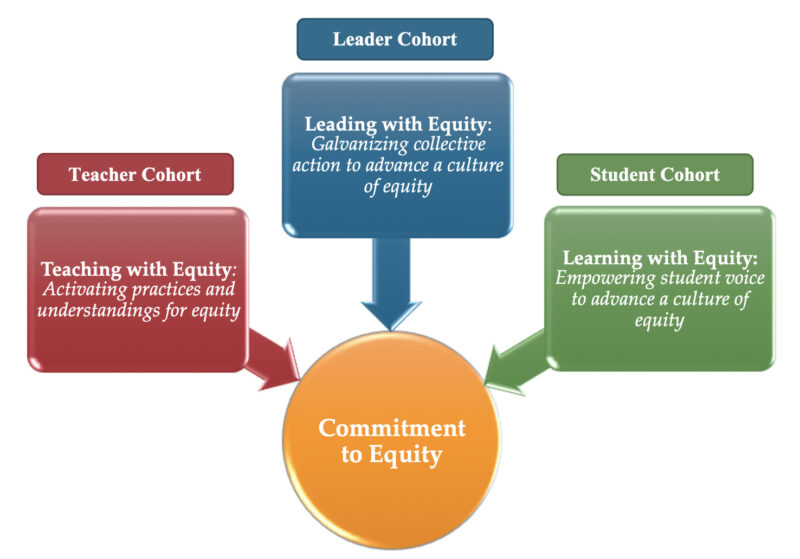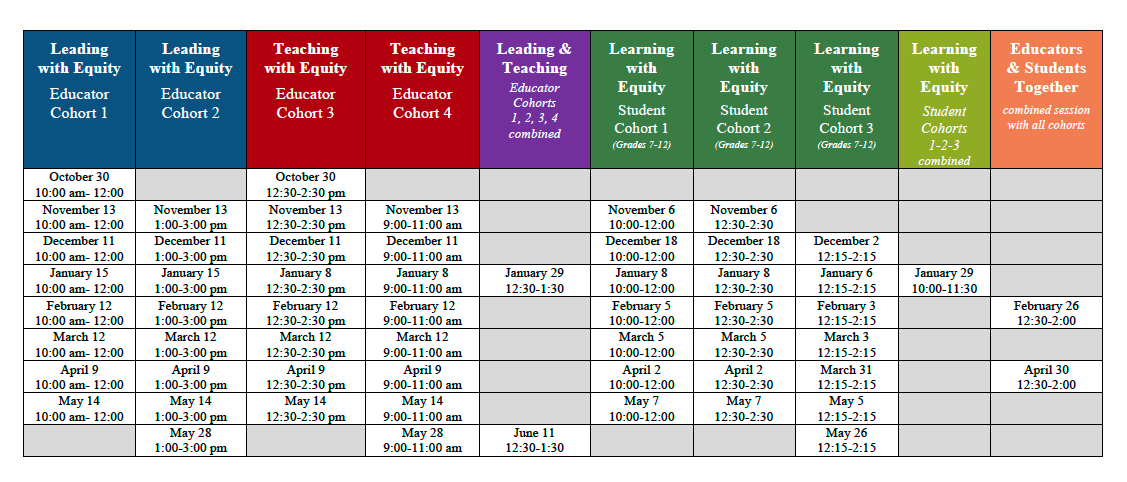The Commitment to Equity Institute is a year-long virtual learning series designed to support educators, students, and community members in achieving racial and educational equity in their schools and districts. Whether institute attendees are new to this work or already have some experience, the goal of the collaborative cohorts is to support all participants in creating brave spaces for doing this transformational work in their learning communities.
All 2021-2021 cohorts have reached capacity. Subscribe to be notified about future opportunities.


Why Commitment to Equity?
Pegasus Springs Education Collective and School Reform Initiative are collaborating to offer professional learning to educators who are committed to practices of leadership and teaching that prioritize interrupting inequities and dismantling racism in their schools. This professional learning opportunity is a virtual offering, as we continue to navigate the stressors of COVID-19. Now more than ever, educators need tools that support a change of mindsets and practices that prioritizes racial and social justice, focuses on culturally relevant pedagogy, lifts student voices, and dismantles systems in schools that perpetuate inequities. We believe that educational equity is the practice of ensuring that all students are able to be successful, regardless of their external or internal racial, social, or cultural context. We understand that as long as race, social, and cultural factors continue to predict the future life chances of children in our schools, we must work to support educators to disrupt these inequities at the individual, classroom, school, and systemic level.
The most challenging work that educators take up in schools tends to be conversations about equity and its implications for leading, teaching, and learning. While there is a range of injustices in our educational system that need to be vigorously addressed, it is the conversation about race that is the most challenging. The conversation about race and equity is challenging not only because of the persistent inequities in our schools and communities, but also because the conversation surfaces deep issues of identity, privilege, history, power, and the very purpose of our educational system. The Commitment to Equity Institute will support leaders, teachers, and students to address these issues in ways that begin in a safe space, move to a brave space, and ultimately lead to a bold space, where those who have felt marginalized the most are empowered to use their voice.
Commitment to Equity / Cohorts & Learning Pathways
Schedule Overview 2020 – 2021
(All times are Eastern Time)

